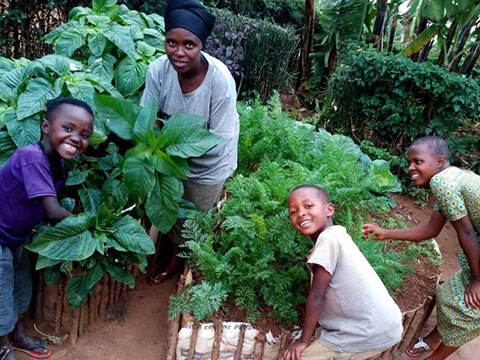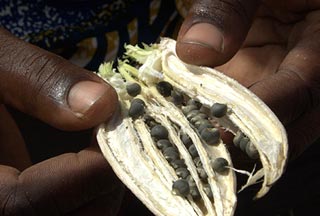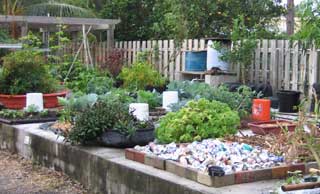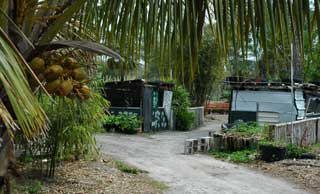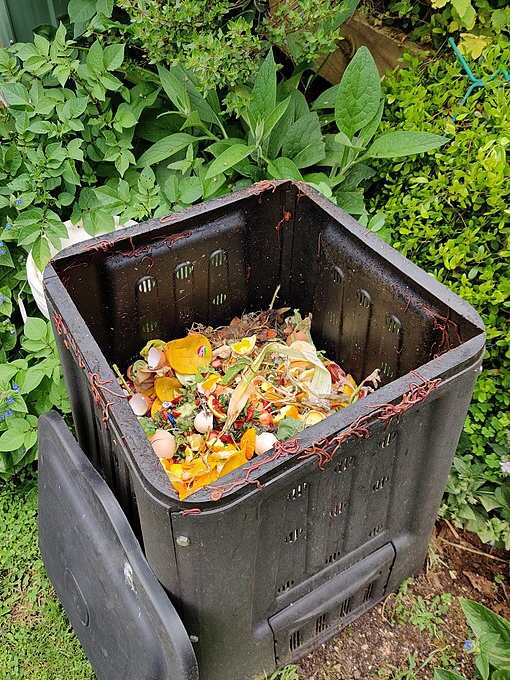Introduction to Composting
Composting is a natural process that turns organic waste materials into rich soil known as compost. By engaging in home composting, you not only reduce the amount of waste sent to landfills but also transform your kitchen scraps into a valuable resource for your garden. The benefits of composting extend beyond simple waste reduction; it also enriches the soil, which in turn improves plant health, reduces the need for chemical fertilizers, and enhances moisture retention. Additionally, composting at home can significantly lower your carbon footprint by reducing methane production—a potent greenhouse gas—typically generated in landfills.
What you Can Compost (Key Materials)
Composting requires a balance of ‘greens’ and ‘browns’ to effectively break down the organic materials. Greens are nitrogen-rich materials such as kitchen scraps (vegetable and fruit peels), coffee grounds, and grass clippings. They help to speed up the decomposition process. On the other hand, browns provide the necessary carbon and include items like dry leaves, twigs, and even cardboard. Together, these elements create an environment conducive to decomposition.
It’s essential to understand what should and shouldn’t be included in your compost bin. While greens and browns are the backbone of composting, certain materials like meat, dairy, and diseased plants should be avoided as they can attract pests and lead to odor issues.
Setting Up Your Compost Bin
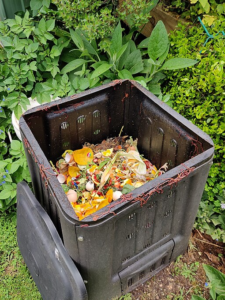
Choosing the right compost bin is a vital step in starting your composting journey. There are several types of bins to consider, including tumblers, stationary bins, and worm bins, each offering different benefits depending on your lifestyle and space availability.
Location is another important factor—your bin should be placed in a spot that has some exposure to sunlight but also offers protection from extreme weather. It should also be conveniently located near your garden if possible, to facilitate easy transfer of the finished compost to your garden beds.
Maintaining Your Compost

Maintaining your compost involves regular checks and balances to ensure optimal decomposition. The pile should maintain an ideal moisture level, akin to a wrung-out sponge. Regular turning of the compost helps introduce oxygen, which is crucial for aerobic decomposition and helps prevent odor. Monitoring your compost for signs of a healthy process, like heat production and an earthy smell, can also provide insights into its condition.
Troubleshooting common issues such as odors, pests, or slow decomposition is part of maintaining a compost pile. Each season may require different types of maintenance, making it important to adapt your approach throughout the year.
Harvesting Your Compost
Knowing when your compost is ready to use is key. Finished compost typically appears dark and crumbly with an earthy odor. Harvesting involves sieving out unfinished materials and storing the finished compost in a dry, covered area to avoid nutrient loss. Applying compost to your garden provides numerous benefits, including nutrient enrichment and improved soil structure, which can greatly enhance the health and yield of your plants.
Conclusion
Composting is an effective way to enhance your garden’s soil quality while reducing household waste and your overall environmental impact. By understanding the basics and committing to regular maintenance, you can create a sustainable waste management system right in your backyard. Whether you are a gardening novice or looking to reduce your ecological footprint, starting your compost pile is a rewarding endeavor.
FAQ
- What is the best balance of greens and browns in a compost pile?
Greens should be balanced with browns at a ratio of about 1:3 to ensure effective composting without odors or excessive moisture.
- Can I compost paper products?
Yes, paper products can be composted, especially uncoated paper like newspapers. However, avoid glossy or heavily inked papers.
- What should I do if my compost pile smells bad?
Bad odors are usually a sign of too much moisture or insufficient aeration. Adjust by adding more browns and turning the pile more frequently.
- How long does it take for compost to be ready?
Compost can be ready in as little as a few months, but typically it takes about 6-12 months depending on factors like temperature and materials used.
–
ECHO provides hope against hunger around the globe through agricultural training and resources. As a Christian technical networking and resourcing organization, ECHO builds a diverse, global network and serves that network by sharing validated contextualized agricultural options with technical excellence. ECHO’s goal is to serve its network members to advance food security and sustainable livelihoods. ECHO’s North American Regional Impact Center is located in Fort Myers, Florida with a global presence through four Regional Impact Centers in the USA, Thailand, Tanzania, and Burkina Faso. For more information about ECHO call 239-543-3246 or visit echonet.org or ECHOcommunity.org.
